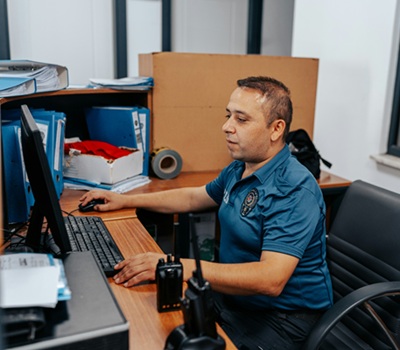FAQs on Turning Yourself In to Law Enforcement
News and ResourcesIf you have an arrest warrant hanging over your head you live your life in a constant state of dread. Every time someone knocks on your door or you get stopped for a traffic violation you have that sinking feeling in your gut that says “Is this it?” It’s not a good situation and it raises the question of whether or not you would just be better off turning yourself in. In this post the team at Tayler Made Bail Bond company answer some frequently asked questions about turning yourself in.
What is Self-Surrendering?
In Colorado, self-surrendering means voluntarily turning yourself in to law enforcement after learning of an active warrant for your arrest. This proactive step can help you avoid a public or unexpected arrest, and it often demonstrates accountability to the court system. Many individuals choose to self-surrender with the help of a bail bondsman to reduce the amount of time spent in custody and streamline the booking and release process. In many cases, surrendering with proper legal and bonding support can lead to more favorable bail conditions.
self-surrender • to turn yourself in to law enforcement voluntarily as a way to resolve an outstanding warrant without being arrested unexpectedly. It’s often seen as a sign of cooperation by the courts.
How do I know if there is an active arrest warrant out on me?
You can find out by searching local government websites. If you’re in Denver County, you will find their website here. If you are in another county like Jefferson County, just do a Google search for that county’s official website. Once on the site search for “arrest warrant”. This should take you to the page on their site that lists currently active arrest warrants. If you are wary about searching gov’t sites you can ask a bonding company to conduct the search for you, though you may need to pay a fee.
Why turn yourself in?
If your search reveals there is an active warrant out for your arrest it’s in your best long-term interest to deal with it ASAP. If you let it fester it will only make it that much harder and uncomfortable to resolve the situation and could result in other charges being brought against you. By turning yourself in you demonstrate to the court that you are willing to take responsibility for your actions. That alone could be the difference between being granted bail and being denied bail.
Where do I turn myself in?

You can turn yourself in at your local county jail or at any one of the Colorado Department of Corrections facilities. Each facility will have a website giving its address and most will also list the times they will accept individuals turning themselves in. Try not to pick a facility at random. The best idea is always to turn yourself in at the county jail where your arrest warrant was issued. Turning yourself in elsewhere will only lead to delays in processing as you will need to be extradited to the proper jail.
What should I bring with me when I turn myself in?
The most important thing to bring is an officially issued photo ID, such as a passport, driver’s license or military ID. If you are taking any prescription medications make sure you bring those too. They should be in a clearly marked pharmaceutical bottle with all relevant information on the label. It’s also a good idea to bring the number of a bail bond agent. Finally, you might want to leave your smartphone behind since it will only be confiscated during processing anyway.
Additional FAQs About Self-Surrendering
In some Colorado counties, it's possible to arrange pre-surrender bail with a licensed bondsman. This can streamline your booking and reduce jail time, but it depends on the type of charge and the county’s policies.
A bondsman can guide you through the self-surrender process, contact the jail ahead of time, and often meet you on-site to post bail quickly. This minimizes your time in custody and helps reduce stress and uncertainty.
Ignoring a warrant increases the likelihood of being arrested at home, work, or during a traffic stop. It can also result in additional charges, higher bail, or denial of bail altogether in some cases.
No, bail is not guaranteed. However, voluntarily turning yourself in can show the court that you are not a flight risk, increasing your chances of being granted bail—especially with the support of a bail bondsman.
In Colorado, most bail bond companies charge a non-refundable premium of 10-15% of the total bail amount. Tayler Made offers transparent pricing and can help you understand payment plans and options before you turn yourself in.
Yes, within limits. It's best to turn yourself in during regular business hours at the jail where your warrant was issued. Your bondsman can help you schedule your surrender to ensure faster processing.
Ideally, contact both. A lawyer can provide legal advice, while a bail bondsman can coordinate the practical steps of self-surrender and release. Tayler Made often works alongside attorneys to make the process as smooth as possible.
For Affordable 24 Hour Bail Bonds, Trust Tayler Made
Living with an arrest warrant over your head is no way to live. If you discover there is an active warrant for your arrest, consider turning yourself in. If you’ve been granted bail after turning yourself in call Tayler Made Bail Bonding at (303) 623-0399 any time of the day or night. We’ll have you home in no time.
Call Our Bail Agents 24/7
Need bail bonding in Colorado? Call our licensed bail bondsmen for 24/7 assistance throughout the Denver metro area.Contact Info
Tayler Made Bail Bonding is available 24 hours a day and 7 days a week.
(303) 623-0399email@taylermadebailbonding.com
3595 South Teller Street
Suite 300A
Lakewood, CO 80235
@TaylerMadeBail

